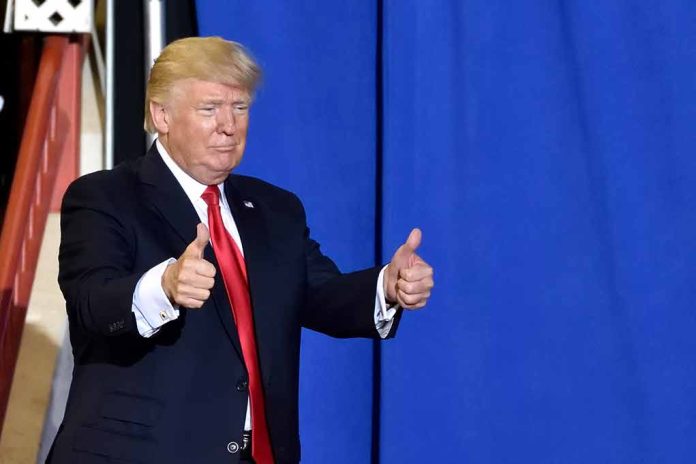
Congress passes the groundbreaking COCOA Act to enhance federal election integrity, awaiting President Biden’s signature.
At a Glance
- COCOA Act passed with overwhelming bipartisan support (413-1 in House, unanimous in Senate)
- Mandates states to allow congressional observers in all phases of federal elections
- Observers appointed by House and Senate committees, bound by strict non-interference rules
- Aims to boost transparency and accountability in the electoral process
- Observers can only be removed under specific conditions to prevent intimidation tactics
Congress Takes Bold Step to Secure Federal Elections
In a rare display of bipartisan unity, Congress has passed the Confirmation Of Congressional Observer Access Act of 2024 (COCOA Act), a landmark piece of legislation aimed at strengthening the integrity of federal elections. The bill, which sailed through the House with a vote of 413-1 and received unanimous consent in the Senate, now awaits President Joe Biden’s signature to become law.
The COCOA Act, officially known as US HR6513, amends the Help America Vote Act of 2002 to require states to permit designated congressional observers to oversee every stage of federal elections, from polling to the certification of results. This move establishes Congress’s constitutional authority to send observers, addressing longstanding concerns about election transparency and security.
🚨 The House and Senate have PASSED the Confirmation of Congressional Observer Access (COCOA) Act! The bill now heads to @POTUS desk.
Chairman @RepBryanSteil spoke on this important measure today. pic.twitter.com/pLvony3BxO
— House Admin. Committee GOP (@HouseAdmin) September 25, 2024
Bipartisan Effort to Restore Faith in Elections
The bill’s sponsors, Representatives Mike Carey (R), Joe Morelle (D), and Bryan Steil (R), have demonstrated that election integrity is a concern that transcends party lines. Their collaborative effort highlights the importance of ensuring fair and transparent elections, a cornerstone of American democracy.
Introduced on November 30, 2023, the COCOA Act moved swiftly through the legislative process, reflecting the urgency felt by lawmakers to address election security concerns. The bill passed on September 10, 2024, and passed the Senate with an amendment by Unanimous Consent on September 24, 2024, showcasing the broad support for its measures.
Strict Guidelines to Ensure Non-Interference
The COCOA Act sets clear guidelines for the conduct of congressional observers. These individuals will be allowed to witness the casting and counting of ballots, as well as the certification of results. However, they are strictly prohibited from handling ballots or equipment, ensuring that the observation process does not interfere with the actual election procedures.
To maintain the integrity of the observation process, the Act includes provisions for the removal of observers who disrupt the electoral process. This balanced approach aims to prevent any form of intimidation or manipulation while allowing for thorough oversight.
Minimal Impact on State Budgets
Concerns about the financial burden on states have been addressed by the Congressional Budget Office (CBO). The CBO estimates that enacting the bill would have no federal cost and expects no increase in the number of observers under the new law. While the Act does impose an intergovernmental mandate by requiring states to allow Congress-designated observers, the cost is expected to be minimal since all states currently permit election observers in some capacity.
The CBO has confirmed that the cost of implementing the COCOA Act would not exceed the intergovernmental threshold established in the Unfunded Mandates Reform Act (UMRA), which is set at $100 million in 2024, adjusted for inflation. This assurance helps allay concerns about potential financial strains on state budgets.
Next Steps and Implementation
With the Senate and House approval, the COCOA Act the bill will head to President Biden’s desk for signature. Given the overwhelming bipartisan support, there is a strong likelihood of the bill becoming law, with experts estimating a 30% chance of enactment.
As the nation approaches future election cycles, the implementation of the COCOA Act promises to bring a new level of transparency and accountability to the federal election process. This landmark legislation stands as a testament to Congress’s commitment to safeguarding the democratic process and restoring the American people’s faith in their electoral system.






















